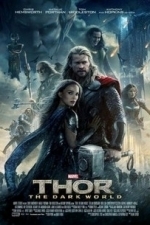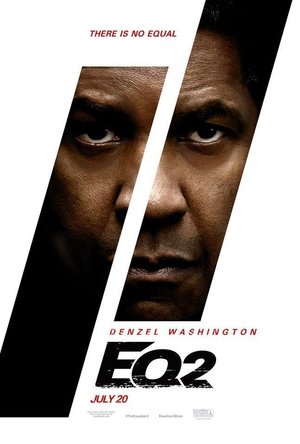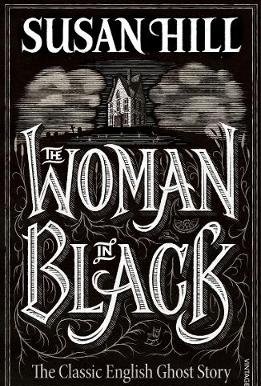Gareth von Kallenbach (980 KP) rated Thor: The Dark World (2013) in Movies
Jun 19, 2019
“Thor: The Dark World”, is poised to carry on the success of the Marvel film franchise as it successfully mixes action and character form the rare sequel that is better than the film that spawned it.
Chris Hemsworth once again stars as the title character who has been spending his time clearing up discord on the planets of the Nine Realms following his outing with The Avengers.
With peace at hand, his father Odin, (Sir Anthony Hopkins), believes the time is right for Thor to prepare for his reign as king of Asgard and protector of the realms.
Thor is not ready to embrace his destiny as his mind and heart are focused on Jane Foster (Natalie Portman), we has not seen since the events of the first film. His father warns him that a mortal is not suited to be his future queen and suggest that his fellow warrior Sif (Jaimie Alexander), would be far more suitable.
To further complicate matters Thor’s treacherous brother Loki (Tom Hiddleston), is seething at the prospect of spending eternity in captivity for his past crimes which only furthers his desire for power and revenge.
While all of this would be enough to keep Thor very busy, a new threat has arisen from the past that threatens to destroy the known universe. A powerful force known as the Aether which had been hidden by Thor’s grandfather has emerged and is drawn the attention of a Dark Elf named Malekith (Christopher Eccleston), who has been hiding away for centuries from those who believed him to be dead.
Malekith wants to take advantage of a pending convergence of the realms to use the supernatural power for his own purposes and in doing so destroy and subjugate all those who are before him. Fate intervenes and brings Jane and Thor together again just as the enemy forces arrived to ransack Asgard.
Faced with a battle against time not only to protect his beloved homeland but to save the known universe, Thor must work with his treacherous brother Loki in a race against time to save the day.
There are plenty of action sequences that follow and the visual effects are quite good even though the film is presented in converted 3-D after being shot in a standard format. The leads are fantastic and truly seem to have a grasp of their characters and the supporting work especially that of Kat Dennings much-needed comic relief is a very nice mix.
The only issue I had with the film other than the converted 3-D, was that the enemy while menacing did not seem to be one of the larger-than-life enemies that one has come to expect from a Marvel film. While certainly dangerous and menacing, there almost seemed to be an air of and confidence about the character as it was clear that he was simply biting off more than he could handle with the forces that were available to him.
That being said the film was extremely enjoyable as were the two bonus scenes that play during the middle of and the end of the credits.
While it may not went over box offices to the level of the two previous Marvel outings, Director Alan Taylor keeps things moving at a steady clip and the film nor the characters do not overstay their welcome.
With another Avengers movie on the horizon and a promise that Thor will return, fans can definitely enjoy this latest offering and look forward to the future for this promising series.
http://sknr.net/2013/11/08/thor-the-dark-world/
BankofMarquis (1832 KP) rated The Equalizer 2 (2018) in Movies
Jul 29, 2018
So...I was "all in" when they announced a sequel to this flick. I figured that Washington and his frequent collaborator, Director Antoine Fuqua (both Equalizer's as well as helming Denzel's Oscar winning performance in TRAINING DAY) would make things "bigger and badder" as often happens in sequels - bigger stakes, more bad guys, bigger - and trickier - improvisations - this time, perhaps at a Walmart!
But I was wrong - they didn't go bigger, they went smaller and smarter - and the movie is better for it.
In EQUALIZER 2, we get more personal with Denzel's character, Robert McCall. There still are plenty of bad guys getting the punishment they deserve, but it is the toll on McCall and the reasoning behind why he is doing what he is doing that is at center stage in this film, putting the weight of this film, rightfully so, on Denzel's more than capable shoulders. He comes through - as he always does - tremendously well. There is one scene where Denzel is trying to get a teenage boy to walk away from a gang. I was amazed that I was watching an "Academy Award" level scene in the middle of an action flick, but that is absolutely what it is.
Now...make no mistake...there is plenty of action, chases and violence in this film, but Fuqua shows great restraint, giving the violence a purpose instead of being gratuitous. Even when they have a final battle in the middle of a hurricane-level storm, Fuqua rightfully focuses on the people element of things - and not the spectacle of the elements and circumstances.
Both Fuqua and Washington make some smart choices in this film, which makes it a smart movie, well made with just enough action to please all.
Letter Grade: A-
8 stars (out of 10) and you can take that to the Bank (ofMarquis)

Drink Water Reminder Pro
Health & Fitness and Food & Drink
App
Water is essential to our life, drinking enough and right quantity of water is vital to our health....

Notebooks for iPhone
Productivity and Business
App
This is the "iPhone only" version of Notebooks. If you want to run it on your iPad, too, you might...

Deeper Smart Sonar
Lifestyle and Sports
App
The No.1 downloaded fishfinder app with great features for planning fishing trips, this free app can...
Little Ray Of Sunshine (41 KP) rated Damage in Books
Jan 11, 2019 (Updated Feb 10, 2019)
HOW CAN YOU HEAL IF YOU CAN'T FACE YOU PAST?
Confident, Popular Gabi has a secret - A secret so terrible she can't tell her family, or her best friend,
she can't even take pleasure in her beloved skateboarding any more. One day, an impulse turns to something darker
Gabi has never felt so alone. But then she learns that not everyone has wounds you can see.
A searing look at self-harm and acceptance from hugely talented Author Eve Ainsworth.
Review
When reading this book I felt attached to the character Gabi as I know how it feels to lose your Grandad as mine passed away last year. It does make a gap in the family and feel weird.
It was sad that Gabi couldn't tell her parents how she felt and how it is making her feel as her parents always busy running their pub.
When Gabi starts to self-harm she felt so alone and this is the only way to release the sadness and pain. She felt she couldn't tell her best friend and her friends she skates about with as she felt they wouldn't want to be friends with her and she felt they would think she doing it just for attention.
I haven't read a book about self-harm before and I feel I want to read more about Mental Health through fiction and non-fiction books. I read this book during 'Mental Health Awareness Week' and I feel this needs to spread and let people at school to read it as I knew a few of my girl friends who self harmed when I was in Secondary School. I felt there was enough support in school when people who are getting bullied or needs someone professional to talk to and listen to them. I admit at the time my friends where doing this I was there to listen but I felt helpless and didn't know what advice to give them.
What is helpful from this book is the Author Eve Ainsworth has included organizations at the back of the book to help people. I will include them too below:
YOUNG MINDS: www.youngminds.org.uk
HARMLESS: www.harmless.org.uk
THE WISH CENTRE: www.thewishcentre.org.uk
RETHINK: www.rethink.org
MIND: www.mind.org.uk
Or if you need to talk to someone, the following organizations are there 24 hours a day.
CHILDLINE: www.childline.org.uk
Phone: 0800 1111
THE SAMARITANS
www.samaritans.org
Phone: 116 123
If you have anymore organizations you know and would like to include please comment below.
Thanks for reading x

Texas Poker: Pokerist Pro
Games and Entertainment
App
Play Texas Hold’em Poker free with millions of players from all over the world! Immerse yourself...

Texas Holdem Poker - Pokerist
Games and Entertainment
App
Play Texas Hold’em Poker free with millions of players from all over the world! Immerse yourself...
Purple Phoenix Games (2266 KP) rated Mass Transit in Tabletop Games
May 13, 2021
Mass Transit is a cooperative, network building card game where players take on the roles of urban planners attempting to lay routes for commuters to head to and from work in the Big City. As the game is cooperative, all urban planners either win or lose together. But in either case, it’s the commuteeples (maybe?) that win or lose.
DISCLAIMER: We were provided a copy of this game for the purposes of this review. This is a retail copy of the game, so what you see in these photos is exactly what would be received in your box. I do not intend to cover every single rule included in the rulebook, but will describe the overall game flow and major rule set so that our readers may get a sense of how the game plays. For more in depth rules, you may purchase a copy online or from your FLGS. -T
To setup, assemble the Big City tiles to make a sweet hexagon. Each commuteeple (ok I think I’m not doing this one any longer) is placed on their worksite in the Big City. Shuffle the big deck of Mass Transit cards and deal each player four cards. The players choose a first player and the game may begin!
On a turn players will need to play at least two of their cards and can play up to all four if they wish. The choices of card play are to add it to a route line or discard it for movement. To add the card to the route line, players simply choose a route line and place the card at the end. This extends the route by one card. To finish a route, players will need to place the suburb card at the end of a line with the appropriate number of cards (some suburbs may show a 4, which means they can only be placed once four route cards have been placed in the same line).
The other way to play cards are to discard them for movement. Cards are discarded out of the game and used for the printed movement type. Green cards are walking, blue are ferry, gray are bus, red are train, and yellow are unavailable to use for movement. For example, a player could discard a green walk card in order to move the meeple one card closer to the suburb card, or could use a red train card in order to move the meeple from one train station icon to the next (which could actually move the meeple over several cards at once). There are some movement restrictions, such as the inability for meeples to simply jump out of a vehicle at a Traffic Stop in order to take an alternate movement type.
If the players can all work together (without expressly verbalizing strategy) and move all six meeples to their suburb homes before a player is unable to play two cards from their hands, they win! However, should a player be unable to play the required two cards from their hand and all meeples are not in their comfy homes, the players all lose together in sweet sadness.
Components. I absolutely love the interconnecting Big City tiles. They are just the right size, and even hold the draw deck. Speaking of the deck, the cards are all nice quality with slight linen finish and excellent graphic stylization. Mass Transit looks great on the table and when finished, looks like a funky subway map with little blue meeples. The meeples come with a sticker sheet, and while you can add your favorite stickers to one side of the meeple, we opted to just randomly add stickers to both sides and it works for us. I have zero issues with the components, and have come to expect that from Calliope Games titles.
All in all, this little game packs a great experience into about 15 or 20 minutes. What I really enjoy is trying to figure out the best usage for the cards in hand. Is it better to use the gray card to add to the route or to use it for fast travel (any Skyrim fans out there?)? To add to this thinkiness, the rules explicitly state that players are unable to discuss strategies, but can hint aloud at what they may be considering. So while this is not a silent game, players will need to carefully decide how best to communicate what they wish the party to accomplish without specifically stating such.
Mass Transit is a game that I can easily pull out and play with my 10-year-old twin niece and nephew, with other adults, or with harder gamers. When a small game can be so versatile, it certainly earns a place in my collection. If you are also looking for a small box game with a smallish table footprint and great presence, consider picking up a copy of Mass Transit. Purple Phoenix Games gives this one a blues travelin’ (hehe) 11 / 12. Pro tip: use the yellow cards early and for route addition only, as they cannot be used for movement. Also, stay away from alpha gamers, and they might not be able to handle the communication ban.
Hadley (567 KP) rated The Woman in Black in Books
Jan 1, 2020
As Kipp soon finds out after traveling to the town just outside of the deceased's home, there is more to this woman, Alice Drablow, than just an old hermit- - - anytime her name is mentioned, people fall silent; the same goes for her home: Eel Marsh House. Kipp doesn't allow this to put him off from doing his job, but when he finds out about the marshes the house lives on, he is told that there are only certain times of the day that he can cross before the marshes become too flooded to cross. 'The Woman in Black' has spine-chilling moments and great descriptive details to make this a quick ghost story to be enjoyed.
Before Kipp heads off to the Eel Marsh House, he must attend Mrs. Drablow's funeral; he is accompanied by a man named Mr. Jerome, an agent that had dealt with Mrs. Drablow's property and land business while she was alive. While at the church, only one other person turns up for the funeral: a woman dressed all in black. Kipp takes note that this woman does not look well and, being the gentleman that he is, tells himself that he will offer his arm to her for stability after the funeral, but when they are leaving the church yard, the woman is suddenly gone. Kipp brings this up to Mr. Jerome, but he merely states that they were the only ones at the funeral.
The best scene to come is Kipp's first night at Eel Marsh House, where he experiences his first real scare in the ruins close by the house that is a dilapidated cemetery. " Suddenly conscious of the cold and the extreme bleakness and eeriness of the spot and of the gathering dusk of the November afternoon, and not wanting my spirits to become so depressed that I might begin to be affected by all sorts of morbid fancies, I was about to leave, and walk briskly back to the house, where I intended to switch on a good many lights and even light a small fire if it were possible, before beginning my preliminary work on Mrs. Drablow's papers. But, as I turned away, I glanced once again round the burial ground and then I saw again the woman with the wasted face, who had been at Mrs. Drablow's funeral. She was at the far end of the plot, close to one of the few upright headstones, and she wore the same clothing and bonnet, but it seemed to have slipped back so that I could make out her face a little more clearly. "
Over the entire course of the book, Kipp only visits the house one more time after this incident. The book has a good story, but it isn't flawless; first, there is the overuse of the word 'estuary,' which is practically used on every page whenever Kipp is at the Eel Marsh House or discussing it. It gets very tiresome. There is also instances of bad writing, where I feel that Hill could have delivered the scenes better than she did: Kipp changing his mind the very next sentence (if you read my reviews pretty regularly, you will realize that I can't stand it when a character contradicts themselves within a page or two), and then Kipp saying he can't do something, than directly after, does it. When you read this book, you will realize that Kipp is not the type of character that would change his mind on a whim.
Kipp is also an interesting character for a male set in this era. Most men in the late 1800's were stoic and refused to show an ounce of emotion in public, but Kipp is not afraid to have other men see him fall apart, and he is also very considerate of other people. There isn't much of a backstory on where Kipp came from or how his parents raised him, but it wasn't really needed for this story. Yet, we meet Kipp's step-children and his first and second wife, without too much of a story about them, so when certain things happen (to not give a spoiler), it doesn't really leave an impression.
There isn't much I can say that wouldn't give away what makes this story enjoyable to read. Overall, this is a good and quick ghost story that may cause shivers for some, but even if it doesn't, the Woman in Black is a must-read for lovers of the paranormal. To me, this seems like a good book to read while traveling because it's easy to pick up and set down without getting lost as to what was going on.




